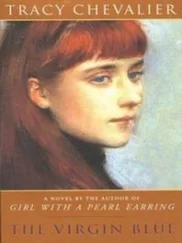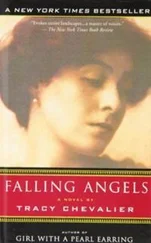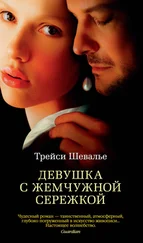“Is the weather the same?”
William Lobb snorted. “No! Plenty of rain, not much sun. The redwoods seem to be doing all right, though: some of the seeds I collected a few years ago have been growing in England. But these-it’s dry here, with fires that pop the cones open so the seeds can get out. That will never happen in England. And it’s high up here-the beginning of mountains such as England doesn’t have. It will be a gamble. But if they take…” He tossed a pinecone into the fire.
“What do the English do with the trees?” Robert persisted.
“Plant ’em on their property.”
“Don’t they have trees in England?”
William Lobb chuckled. “Of course. But they want new and different, you see. The wealthy landowners have been busy creating ‘tableaux’ on their grounds.” At Robert’s blank look, he added, “They lay out trees so they look like works of art rather than just letting nature grow as it will. Now they’re demanding conifers, for they love exotic trees that remain green all year round. They set off the broadleaf trees, with their changing colors, and provide structure and life when everything else is bare. There are few native conifers there-only the Scots pine, the yew, the juniper. So I’ve been sending as many as I can from California. Some of them are even creating ‘pinetums’ on their property where they plant and show off a variety of conifers.”
“You send trees to England.” A thought was stirring deep in Robert’s mind, like a fish swimming below the surface of a lake.
“Yes, saplings sometimes, though they often don’t survive the journey. Seedlings are better-being smaller they don’t snap off so easily. But you may as well send seeds, that’s best. Even then, many seeds never grow. You might plant a hundred and get twenty seedlings from them, and of those, five might grow into saplings, and two into trees. That’s why I have to collect so many cones-as many as my horse can carry. Your horse too, if you’ve the time to ride to San Francisco. I assume you do or you wouldn’t be out here just to look at trees.”
It took Robert a moment to understand William Lobb was asking him to work for him for longer than just that day. Before he could answer, Lobb added, “I’ll pay you, of course. It’s worth my while to be able to collect and carry twice as many cones.” Clearly he’d thought Robert’s hesitation was over money.
Actually Robert would have helped him for nothing. He had been hesitating because the thought was now surfacing. “Have you ever heard of a Golden Pippin?” he asked.
“Of course.” William Lobb had finished his pipe and was taking off his boots. He seemed unbothered by the swerve in conversation. “I’m more of a Cornish Gilliflower man myself, though. I prefer my apples with a bit of red on ’em.”
“Are Golden Pippins common in England, then?” Robert tried to hide his disappointment. From the way his father had talked, he’d always assumed that Golden Pippins were very rare, known only to the Goodenoughs.
“Common enough. Not as common as a Ribston Pippin or a Blenheim Orange, but easily found. You know George Washington had them brought over to Mount Vernon? They didn’t thrive, though-not the right climate.”
“The Goodenoughs’ trees did.”
“Did what?”
“Thrive. We grew Golden Pippins in Ohio, and Connecticut before that. My grandparents brought branches from England and grafted them, then my father did the same when he went to Ohio.”
“Really?” For the first time, William Lobb looked at Robert with genuine interest. “Your father was a grafter, was he?”
Robert nodded.
“My brother and I used to do a bit of grafting at Killerton, back in Devonshire. What was the yield of yours?”
“Ten bushels a tree.” Robert allowed himself to think about the Golden Pippins for the first time in years. “Have you ever tasted a pineapple?”
“Pineapple?” William Lobb chuckled. “I ate them every day in South America. Got tired of them. Why?”
“That’s what our Golden Pippins tasted of: first nuts and honey, then pineapple. That’s how Pa described it, anyway. I never tasted real pineapple. Not sure he did either.”
William Lobb was staring at him. “Where did the Goodenoughs come from in England?”
Robert frowned. He wanted to say he couldn’t remember, but he knew that was not an acceptable answer to someone like William Lobb. He tried to think of what his father had said, so long ago. “Herefordshire,” he dug out at last.
Lobb suddenly laughed, a great bark, almost a shout. “Pitmaston Pineapple,” he announced.
Robert raised his eyebrows.
“Pitmaston Pineapple,” William Lobb repeated. “That’s what your father grew. It was a Golden Pippin seedling that originally grew in Herefordshire, had an unusual taste and a local following. Several years ago a man growing it in Pitmaston exhibited it at the London Horticultural Society. Gave it the name ‘Pitmaston Pineapple’ because of the pineapple finish. I’ve read about it but never had one. Been out of England too much to keep up with apples.”
“I didn’t know apples could change their taste.”
“Well, they go from sour to sweet sometimes.”
“I know. One in ten seedlings turns out sweet.” Robert repeated his father’s words.
William Lobb nodded, pleased. “If they can change from sour to sweet, there’s no reason why other tastes can’t change: from lemon to pineapple, for instance.” He pulled a blanket from his bag.
“So an English tree has come to America,” Robert spoke his thoughts aloud, “and now you are sending American trees to England.”
“True. There is a commerce in trees, just as in people. But a Pitmaston Pineapple growing in Ohio?” William Lobb chuckled, wrapping his blanket around him in preparation for sleep. “That’s almost enough to make me go there, just to taste it!”

In the morning they collected more cones, then loaded their horses with what they had gathered. The gray did not like carrying the four bulging sacks, which were light but bulky, and spun round and round to try to fling them off. The clanking of the pails that held the seedlings also made him skitter sideways. Lobb watched these antics with amusement while his own horse-a big buckskin mare with black stockings, seeming dumb but probably as smart as her owner-stood stolid and indifferent, though she carried more complicated baggage. In the end Lobb had collected four sequoia seedlings and two larger saplings, all in pails which he hung all over the horse so that she resembled a traveling trader, bumping and jangling with her load of tin. This was apart from saddlebags and a leather box of drying specimens that hung from her and bumped her side. Lobb had to ride with care, sitting ramrod straight, but like his horse he seemed used to it.
Robert found it hard to leave Calaveras Grove, not knowing when he would come again to see the giant trees. When he glanced back at the tawny bark beyond the smaller trees, his chest felt tight. He was glad, then, to be riding with William Lobb, as it forced him to look and think ahead.
They took the road down to Murphys, a route that should have taken only a few hours but with William Lobb took the whole day. He was constantly distracted by what he saw, and stopped to inspect what looked to Robert like nondescript flowers, taking quick notes and making sketches and pressing them between the pages of his notebook. Some of them Robert knew: lupines, pussypaws, cow parsnip. But others he was unfamiliar with, like the fiddleleaf, a purple-flowered plant with sticky oval leaves that Lobb was keen to collect. Still others even Lobb didn’t know. It occurred to Robert only later that this might have been the first time anyone paid real attention to some of those flowers-that Lobb was studying them and in fact would eventually give them their name.
Читать дальше
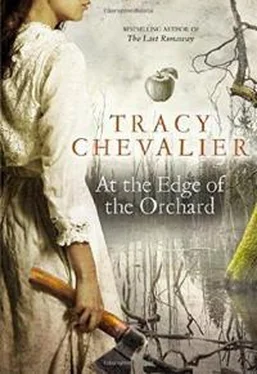


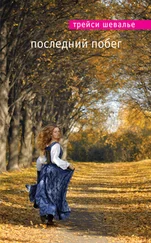

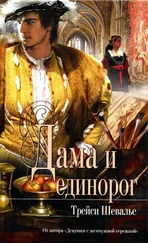
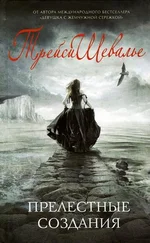
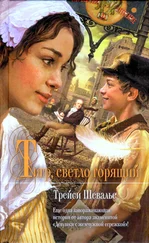
![Трейси Шевалье - Тонкая нить [Литрес]](/books/386177/trejsi-shevale-tonkaya-nit-litres-thumb.webp)
